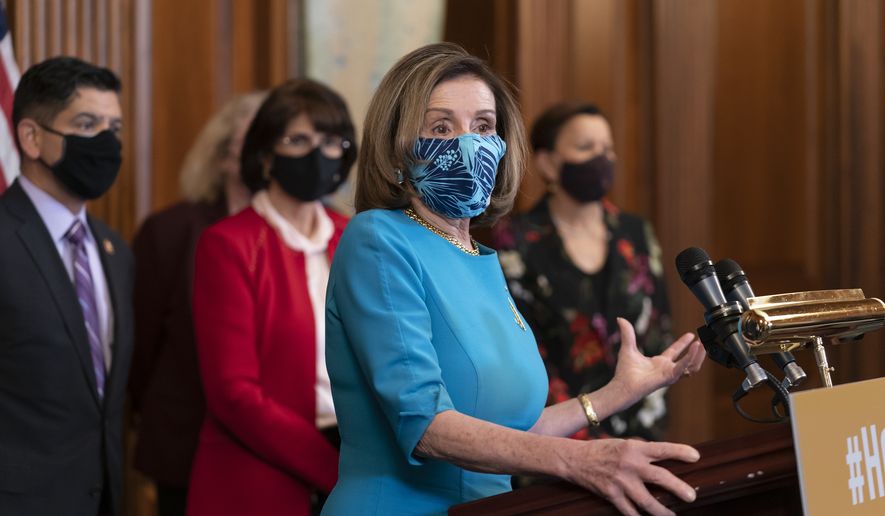The House approved two bills Thursday that could grant citizenship rights to about half of the 11 million immigrants who are in the U.S. illegally, with Democrats saying the current surge of migrants at the border shouldn’t stand in the way of rewarding those who’ve already been here for years.
One bill would legalize farm workers who are here without permission, while the other would do the same for young adult “Dreamers,” as well as migrants here under special protections such as deferred deportation or Temporary Protected Status.
The farm-worker measure passed 247-174, drawing 30 Republicans’ support. The Dreamer bill passed 228-197, with nine Republicans in favor.
Democratic leaders called the bills a recognition that people have been living here for years, some openly under programs like DACA and others still deep in the shadows, and they deserve a chance to get right with the law.
They also called the bills a concrete way to move on from former President Donald Trump’s immigration policies.
“We say to the world we are making a very big difference in how we value the diversity of America,” House Speaker Nancy Pelosi, California Democrat, said ahead of the votes.
Bill supporters repeatedly rejected the term “amnesty” for the legislation, though that’s exactly what opponents said both bills would be.
“Talk of amnesty fuels illegal border crossings,” said Rep. Tom McClintock, California Republican.
Thursday’s votes are likely to be the high water mark for the bills, which are unlikely to move in the Senate, at least as they are now written.
They could be incorporated into a broader immigration bill, said Sen. Robert Menendez, New Jersey Democrat, who called them “drivers of the conversation.”
But Mr. Menendez told reporters on Capitol Hill that the outlines of a final bill will depend on what sort of support Senate Republicans will offer. The Senate is divided 50-50 between the parties.
Senate Republicans who had been willing to work on legalization bills in the past have said in recent weeks that the appetite for that kind of bill is much lower now, given the Biden administration’s fumbles on handling the border.
With that backdrop, Thursday’s votes in the House had an air of checking off boxes rather than an attempt to write legislation that will become law.
In both cases, the level of support among Republicans was about equal to 2019, when both bills also cleared the House. While they didn’t lose much backing, they also have not gained more supporters in the post-Trump era.
The bill legalizing Dreamers and TPS holders could apply to as many as 4.4 million people, according to the Migration Policy Institute. Many of those are here under a temporary deportation amnesty, and are already holding jobs on temporary work permits.
They would get a multistep pathway to citizenship for undocumented immigrants who made it to the U.S. before 2021, and who met other eligibility requirements such as age of arrival or being part of a humanitarian relief program.
“America is their home and their country,” said Majority Leader Steny H. Hoyer, Maryland Democrat. “We owe them the chance to live without fear of deportation and family separation.”
The other bill would legalize farm workers, who likely total 1.2 million people, but could be much higher. The pathway to citizenship would be optional, which backers said is a recognition of the fact that many of those workers hope eventually to return home.
In addition to legalization, the farm-worker bill revamps the current seasonal agriculture guest-worker program with a pilot program to let workers switch employers without needing a new visa, and adding protections for workers who want to complain about rough conditions.
It also requires farms to use E-Verify, the government’s most robust but currently voluntary system for checking to see if new hires are authorized to work.
The White House said President Biden supports both bills, but said he wants to see changes to the farm-worker bill.
Both bills had the backing of major business interests, such as the U.S. Chamber of Commerce.
• Stephen Dinan can be reached at sdinan@washingtontimes.com.
• Kery Murakami can be reached at kmurakami@washingtontimes.com.




Please read our comment policy before commenting.